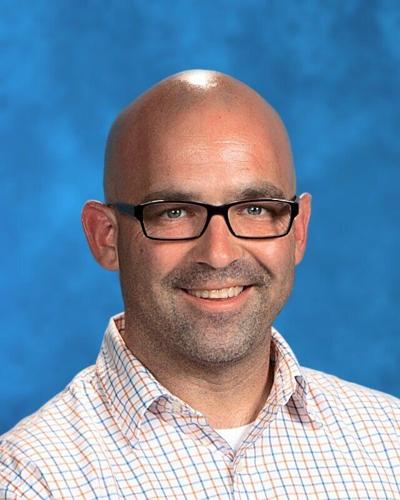
Matthew Hawn
The story of a Sullivan County teacher fired for teaching about racism in a contemporary issues class has gained national coverage over the past year. Teacher Matthew Hawn was let go from his job at Sullivan Central High School after Tennessee’s anti-critical race theory law went into effect. On Tuesday, Hawn will appeal to the county school board to overturn his dismissal.
Incidents cited in his termination included the teaching of an essay by Ta-Nehisi Coates about the role of racism in Donald Trump’s populist rise to the presidency and a poem by Kyla Jenée Lacey about white privilege. Some parents complained Hawn didn’t use other points of view after introducing the Coates piece, and others about profanity in Lacey’s work. Hawn was fired in June.
Coates and Lacey both appeared at a virtual press conference on Monday held in support of Hawn. The conference was organized by the social justice think tank African American Policy Forum.
“As a Black artist, my work was seen as profane, and the thing is, profanity has not ever been something that has been excluded from artistic expression,” said Lacey. She also noted that “it’s intellectually dishonest to say profanity was an issue” when there are also calls to ban books about Ruby Bridges, the first African American student to attend a white Louisiana school.
“This is part of a nationwide wave to restrict education, to restrict information, to narrow the dialogue and debate in this country,” said Coates. “This is not new. The entry of diverse voices … is a relatively new event in this country’s history.” The award-winning writer also pointed to the history of exclusion in industries like publishing and film.
Hawn, a lifetime resident of Sullivan County who has been teaching for 16 years, also spoke at the presser.
“I introduced the perspectives of an award-winning author and an avant-garde poet,” he said. “I did not introduce my perspectives. I wanted my students to understand the perspectives of Ta-Nehisi Coates and Kyla Jenée Lacy.”
Hawn said that his students are being put at a disadvantage by not being allowed to discuss these issues — they’ll have to compete for admission to college with students across the country who have been able to participate in those debates.
Kimberlé Crenshaw, the lawyer and professor who pioneered critical race theory — a legal framework that examines the role of racism in society, usually taught in graduate programs rather than elementary schools — called the uproar against teaching the history of racial injustice in schools an “effort to turn censorship into a just cause.”
“Matthew is being deprived of his livelihood and his passion because he sought to help his students think through the fraught moment of last year’s protests over the police skilling of George Floyd and the police shooting of James Blake,” said Crenshaw, who is also director of the African American Policy Forum.
Hawn feels confident he will be reinstated on Tuesday. The hearing takes place at 4:30 p.m. Eastern.





